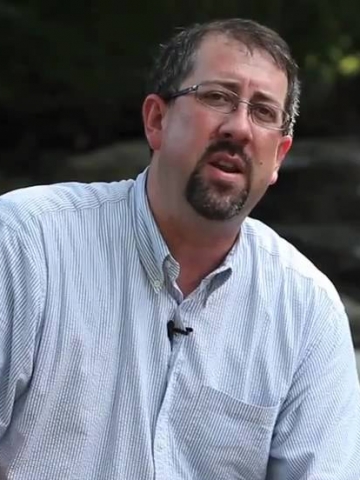
The Striking Behavior of Rattlesnakes
NOVEMBER 18, 2005
Dr. Travis LaDuc
Texas Natural History Collections
Texas Memorial Museum
What is the talk about?
Rattlesnakes are efficient predators that play an integral role in maintaining the balance within ecosystems. Unfortunately, their capacity to injure or even kill humans has made them among the most misunderstood vertebrates on the planet. Few other groups of animals inspire man’s contempt and fascination like rattlesnakes. Many people already find it difficult to relate to snakes, but knowing that rattlesnakes are venomous and that they audibly advertise this fact, most people despise and fear rattlesnakes. Popular culture feeds this fear of rattlesnakes with exaggerations of aggressive and deadly encounters, and this contributes to the persecution of this valuable group of animals. This lecture will dispel some of the myths surrounding rattlesnakes by sharing insights into their natural history gained through the use of high-speed videography, thermal imaging cameras, and radio transmitters These technologies have opened new avenues of research on the physiological and behavioral limits of not only rattlesnakes but of other animals. By offering suggestions on how best to avoid encounters with rattlesnakes, coupled with a better understanding of rattlesnake biology, it is hoped that rattlesnakes can be respected as an integral component of the natural landscape.
About our presenter

Dr. Travis LaDuc
Dr. Travis J. LaDuc is a herpetologist at the University of Texas at Austin. His job at the University includes curation of the natural history collections as well as conducting outreach programs to a wide variety of educational and civic organizations throughout Texas. His research interests focus on the biodiversity and natural history of Texas reptiles and amphibians. Travis is also interested in all aspects of pit viper biology, including variation in venoms, population ecology, and systematics.